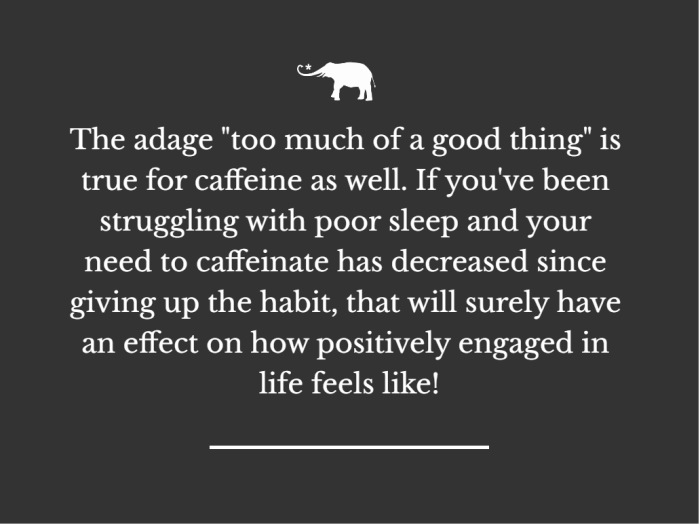Coffee may be the perfect elixir for balancing your mental state, with its energizing effects and ability to sharpen focus. Caffeinated teas provide an extra boost of antioxidants that can protect against brain diseases such as Alzheimer’s disease or Parkinson’s without any negative side-effects from drugs containing prescription medications often used in those conditions!
Cutting ties with caffeine can be a difficult decision for some people, but if you’re finding that your reliance on the drug is negatively impacting other aspects in life like sleep patterns or work performance then maybe it’s time to make this change.
For example: when I am feeling tired after waking up early but need something quick before heading out in public or working through lunchtime until late at night; then an espresso drink seems like just what’s needed!
Sugar, fat, or caffeine? Which is worse for my health?
Giving up coffee can be difficult for some people, but the good news is that you’ll start feeling better after just one day.
The first thing most folks notice when they truncate their caffeine intake is how cranky and tired-looking creatures seem in comparison to usual – this happens because our body needs time without caffeinesto adjust!
“In the short term you may experience more mood swings and tiredness as your brain adjusts to a lack caffeine,” say the experts. Generally though, people notice an improvement in their energy levels after about two weeks without coffee.
Caffeinated beverages are an integral part of so many people’s lives, and missing out on that first cup in the morning can leave you feeling down. If it was always your routine to have a few sips before heading off for work or school then no doubt caffeine will be missed!
The benefits of cutting caffeine
Caffeine withdrawal is not just a scary idea. It’s actually something that many people experience, and the effects can last from two to nine days! But what happens after?
Every person burns coffee differently—so it depends on how much you drink in your life-time whether or not this will affect things for an extended period of time with no caffeine around.
If you’re sensitive to it, reducing your intake could lead to feeling less anxious over time!
The adage “too much of a good thing” is true for caffeine as well. If you’ve been struggling with poor sleep and your need to caffeinate has decreased since giving up the habit, that will surely have an effect on how positively engaged in life feels like!
You can do is if you want it!
Of course, coffee and caffeinated tea both have myriad health benefits, including being linked to longevity.
A lot goes into deciding whether or not this is something that would work well for your personal preferences.
It is important to experiment with your caffeine intake because everyone has different needs. You may need more or less depending on what works best for you personally, so it’s wise that try out various amounts of coffee/tea over time before making any final decisions about how much beverage is right fit!

 Share on bsky
Share on bsky





Read 0 comments and reply